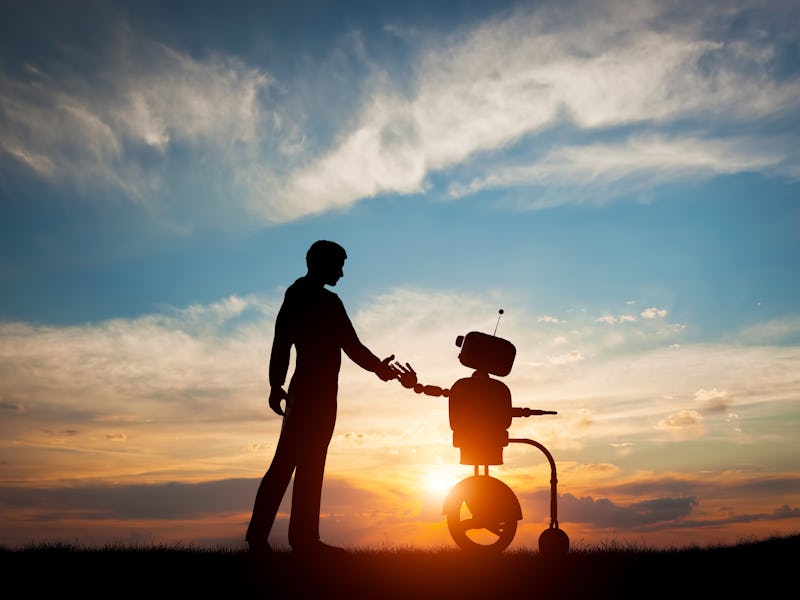In the 2020s, human-level A.I. will arrive, and finally pass the Turing test
So, what's it mean for us, the humans?

The past decade has seen the rise of remarkably human personal assistants, increasing automation in transportation and industrial environments, and even the alleged passing of Alan Turing’s famous robot consciousness test. Such innovations have taken artificial intelligence out labs and into our hands.
A.I. programs have become painters, drivers, doctors assistants, and even friends. But with these new benefits have also come increasing dangers. This ending decade saw the first, and likely not the last, death caused by a self-driving car.
This is #20 on Inverse’s 20 predictions for the 2020s.
And as we head toward another decade of machine learning and robotics research, questions surrounding the moral programming of A.I. and the limits of their autonomy will no longer be just thought-experiments — but time-sensitive problem.
One such area to keep on eye on going forward into a new decade will be partially defined by this question: what kind of legal status will A.I. be granted as their capabilities and intelligence continues to scale closer to that of humans? This is a conversation the archipelago nation Malta started in 2018 when its leaders proposed that it should prepare to grant or deny citizenship to A.I.’s just as they would humans.
The logic behind this being that A.I.’s of the future could have just as much agency and potential to cause disruption as any other non-robotic being. Francois Piccione, policy advisor for the Maltese government, told Inverse in 2019 that not taking such measures would be irresponsible.
“Artificial Intelligence is being seen in many quarters as the most transformative technology since the invention of electricity,” said Piccione. “To realize that such a revolution is taking place and not do one’s best to prepare for it would be irresponsible.”
While the 2020s might not see fully fledged citizenship for A.I.’s, Inverse predicts that there will be increasing legal scrutiny in coming years over who is legally responsible over the actions of A.I., whether it be their owners or the companies designing them. Instead of citizenship or visas for A.I., this could lead to further restrictions on the human’s who travel with them and the ways in which A.I. can be used in different settings.
Another critical point of increasing scrutiny in the coming years will be how to ensure A.I. programmers continue to think critically about the algorithms they design.
This past decade saw racism and death as the result of poorly designed algorithms and even poorer introspection. Inverse predicts that as A.I. continues to scale labs will increasingly call upon outside experts, such as ethicists and moral psychologists, to make sure these human-like machines are not doomed to repeat our same, dehumanizing, mistakes.
As 2019 draws to a close, Inverse is looking to the future. These are our 20 predictions for science and technology for the 2020s. Some are terrifying, some are fascinating, and others we can barely wait for. This has been #20. Read a related story here.